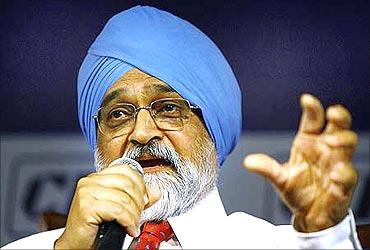
In an interview with Karan Thapar on the CNN-IBN channel's Devil's Advocate programme, Planning Commission Deputy Chairman Montek Singh Ahluwalia explains why he faults the controversial report of the Comptroller and Auditor General on 2G telecom spectrum allocation. Edited excerpts:
The CAG report on 2G spectrum says the prospective loss incurred by the public exchequer could be perhaps as much as Rs 1.76 lakh crore Kapil Sibal (the telecom minister) says this is utterly erroneous and there was no loss at all. Whom do you agree with?
I think Rs 1.76 lakh crore (Rs 1.76 trillion) is a way out, unrealistic, number. Kapil himself has explained why it is not reasonable. It is based on 3G auctions which took place three years later, is not at all comparable and so on.
If so, was there a loss of a smaller dimension?
It's not very fruitful to go into the question: Could we have raised X amount of money? Because, the entire formulation of the telecom policy since 1999 has been that revenue maximisation is not the objective.
Kapil has explained that on certain calculations, if you make an assumption that maybe by a different kind of pricing or by a different kind of auctioning you might have made more money, you have to weigh that against the benefits you lose by lesser spread of telecom services at a competitive price.
. . .
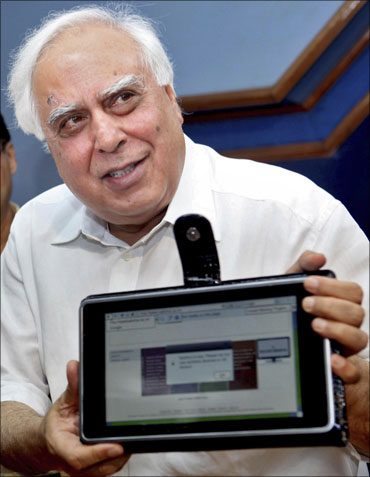
That benefit is huge. There's been a lot of work done in other countries and we should learn from that.
In the United States for example, people had estimated what they call the loss of consumer benefit if you try to raise revenue is 10 times the revenue you raise.
That was the guiding policy. We were not trying to raise revenue. Telecommunications is a transformative technology, with huge benefits to the rest of the economy.
It is not the revenue loss from the auction that counts. It's the total revenue impact on the exchequer. What you lose in the auction, you may gain from the revenue shared. That's not being calculated by CAG at all.
If Kapil Sibal is right in saying there was "no loss whatsoever" to the exchequer, how do you account for the fact that companies like Swan and Unitech made windfall gains, possibly as much as $2 billion, within weeks of getting the spectrum and without starting up operations?
When Kapil said "no loss to the exchequer", he kept saying you have to compare that against the benefits. I read him as saying that in net terms, if you count the benefits, probably there wasn't a loss.
. . .
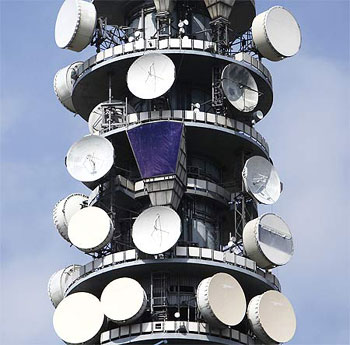
The truth is that the benefit of selling 2G cheaply didn't go to the consumer; it was cashed-in by Swan and Unitech, when they sold their equity to foreigners at a huge profit. The extent to which they made a profit is surely a reasonable measure of the loss to the exchequer.
The public is being misled quite a bit on this. It's true that Swan and Unitech issued new equity to the companies that bought into them because they had telecom spectrum allocation.
(But) This money didn't go to the promoters, it went into the new companies and is meant to be used to roll out the telecom services. They didn't sell their equity. They expanded the equity of the company and brought in new people.
They sold a small portion of the equity, for almost three times what they paid for the entire amount. Then, that is the measure of profit they made and that profit could have accrued to the government, if it had charged them higher prices. Which is why CAG says there is a loss to the exchequer.
These figures do not take account of a crucial thing, which is between auctioning and not auctioning. If you believe you can auction and overprice or price and it makes no difference to the rate at which telecom rolls out, then of course there is a loss.
The whole crux of the argument is, if you charge them too much, then the telecom services will not roll out to the same extent. And, telecom services not rolling out means less revenue share, less spectrum usage.
. . .
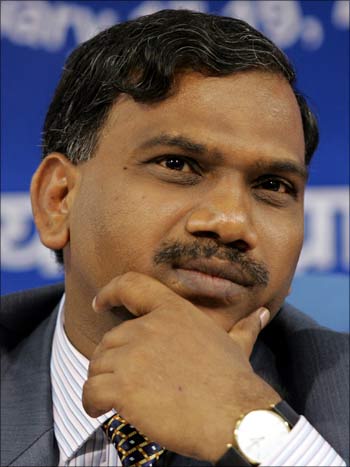
You assume why telecom services rolled out in the way they did, and the pricing of the telephone was at the level at which it was, is because 2G was made available cheaply. The reason why you have massive tele-density which has expanded hugely and you have cheap services is because of competition, because of changes and improvement in technology and because of the manner in which competition has encouraged the pricing to come down. You're overlooking that.
When the telecom policy was first introduced, the then government had in the 90s auctioned these licences for huge amounts.
Within a year, it was quite clear that although there was competition, and there were many producers and service providers, they just couldn't succeed and yet pay these huge amounts.
So, they came back, and the then government, I think Jaswant Singh headed a group of ministers on telecom, and came to the conclusion that the revenue maximising approach was wrong, that we should actually reduce the auction amount and switch to a revenue share.
Incidentally, in 2001, the CAG strongly criticised that particular policy. Now you ask yourself, if you had followed the then CAG's recommendations, do you think you would have had any kind of telecom expansion in the country? You wouldn't.
. . .
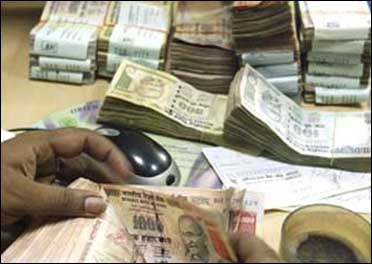
The whole issue hinges upon how cheap do you make it to improve teledensity? How much of a hit should the exchequer take? Even on your premise, that it is essential to price it cheaply to make the service and the industry viable and to make it grow, you don't have to price it as cheaply as Raja did. In 2008, you already had 300 million users of mobile telephone compared to just four million in 2001. Companies were hugely profitable in 2008; they weren't in 2001. So, the argument that you price cheaply to spread teledensity doesn't hold.
But policy is based on a certain continuity. Since 2001, they've been allocating spectrum at Rs 1,658 crore (Rs 16.58 billion) for a pan-India licence equivalent.
Who are the technical people advising the government on this? The Telecom Regulatory Authority of India. You read report after report of the Trai.
In August 2007, while Trai talks about whether we should have a different system, in the end it says "no change".
I quote from that Trai report of August 28, 2007: "In today's dynamism and unprecedented growth of the sector, the entry fee determined then, i.e. 2001, is not the realistic price for obtaining a licence. It needs to be re-assessed through a market mechanism". That re-assessment was never done.
That's the introductory sentence in a whole section. What they concluded was: First of all, earlier guys had got it at Rs 1,658 crore. Later fellows are at a disadvantage, they haven't got a big subscriber base.
Therefore, if you raise the price, you'd be putting these fellows at a disadvantage and after a certain amount of, you may say balancing, the end recommendation is: auction 3G, do not auction 2G and carry on as is.
. . .
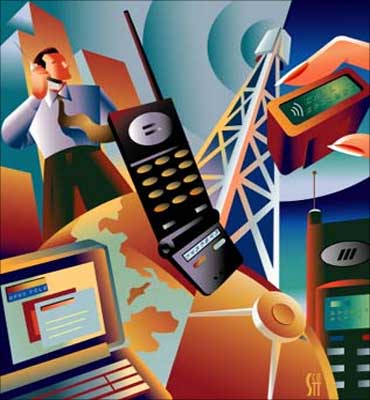
They did say "carry on as is" in terms of not auctioning and carrying on by the "first come first serve" rule, but they didn't say charge the same price. Don't stick to 2001 pricing, increase the pricing, stick to the same "first come, first serve."
I have no problem with that argument; you could make the argument in 2008, even though you've been giving licenses in seven years at different times, all at Rs 1,658 crore.
Which shouldn't have been done.
Different governments did it. Look at it in terms of what Trai finally said. Had they wanted the price to be reviewed, they would have said, 'Keep the system but adjust the price'. They didn't say that.
It wasn't just Trai which had serious reservations about pricing. The finance secretary in a letter dated November 22, 2007, to the Department of Telecom indicated he had serious objections to spectrum being sold in 2007 at 2001 prices. He wanted the price raised and the decision to sell at the old price stayed. That wasn't done.
As any finance ministry would do; they'd be looking for revenue maximisation, even though they might not quite like to say that. So, it is true the finance ministry felt we ought to get a better price for the spectrum.
But the procedural issue is that if the finance ministry didn't really want to do this, they could have taken this matter to the Cabinet. But in the end, in July 2008, the two ministers reported back to the prime minister that we have reached an agreement, that these licenses should be treated as in the past.
. . .

The memorandum Mr Chidambaram (the then finance minister) wrote to the Prime Minister dated January 15, 2008, six months before the July date you are talking about, says clearly: "Spectrum is a scarce resource. The price for spectrum should be based on its scarcity value and the efficiency of usage. The most transparent method of allocating spectrum would be through auction."
If you were trying to maximise the value of spectrum that you realise, then what Chidambaram recommended is right. But in contemporary economics, that is not what you do for spectrum.
There is enormous literature on what should be the guiding principle for allocating spectrum and there is complete agreement that you do not maximise value, because the price of the spectrum is not independent of the policies you have.
Did you incur a bigger loss than you needed to, just to benefit the industry and spread the teledensity? Have you overdone it?
The limited point you are making is, wouldn't it have been better to raise Rs 1,658 crore to a higher number? It's impossible to make an argument on that unless you quantify.
. . .

Why do you want to abandon the figure of 40-45,000 crore (Rs 40-45 billion)? That is the sum of profit that Swan and Unitech made.
Swan and Unitech issued new equity. That new equity brought this money into the company. Their own equity in the company declined significantly, as a result. So, that is not money that the owners of Swan and Unitech made.
What you're really trying to say is, why were these operators able to make this much? The fault there lies in the 'first come, first serve' principle. That principle was in place for 10 years; it was not invented by this government. It enables whoever came first to get preference in the licence.
CAG has rightly criticised a lot of the means of implementing the 'first come, first serve'. But I'm going further.
I think even the 'first come, first serve', even if perfectly implemented, would create a situation where weak players who don't have the full capacity to utilise the value of the licence, would end up bringing in a lot of other people who would actually utilise the value.
You can always have 'first come, first serve' with tighter rules of eligibility. CAG says companies that were not eligible have been given licences. Kapil has said he is going to cancel these licences, following due process of law. So let us be clear, I am not saying there wasn't a problem.
. . .
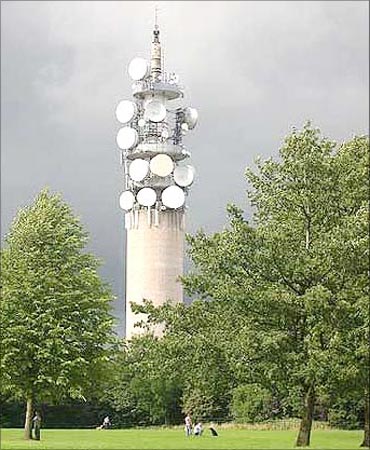
But the problem is different from what CAG identified?
I do believe focusing on revenue loss is analytically a red herring. It misses the entire accumulative knowledge on how to run the telecom system.
It contradicts the entire policy of the government of India in the past 10 years and it is against what Trai recommended. CAG should have said all this (and did not).
It should have said that in Europe, the auctioning was widely regretted by the countries that did it, because it was felt that it wasn't the right way to go. In a public debate, everybody loves a scam, so nobody wants to raise these issues.
The important thing is that you do believe 'first come, first serve' was the wrong way to have gone about it.
If we were doing another system, which was non-auction, I would not do it on 'first come, first serve'. I would do it on qualifying players according to weightage given to technical capacity. That's the sensible way of doing it.